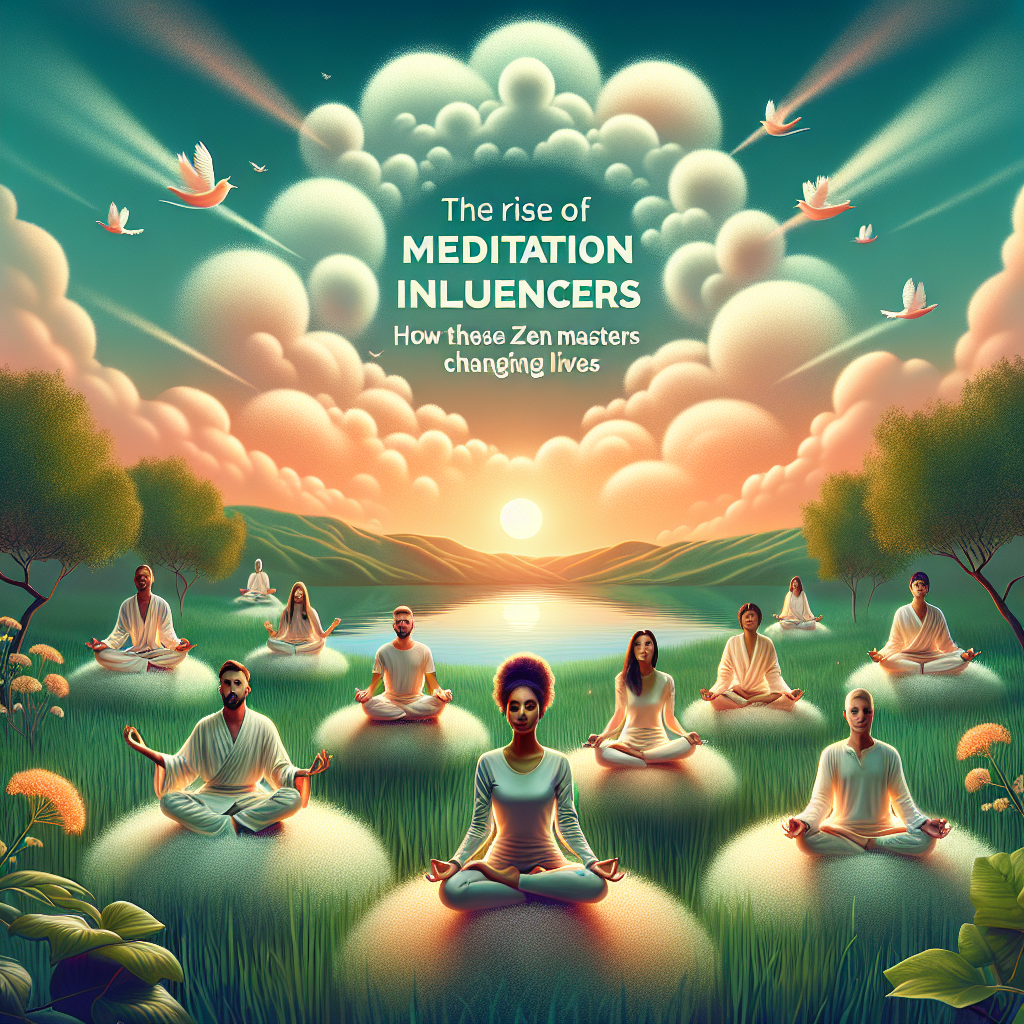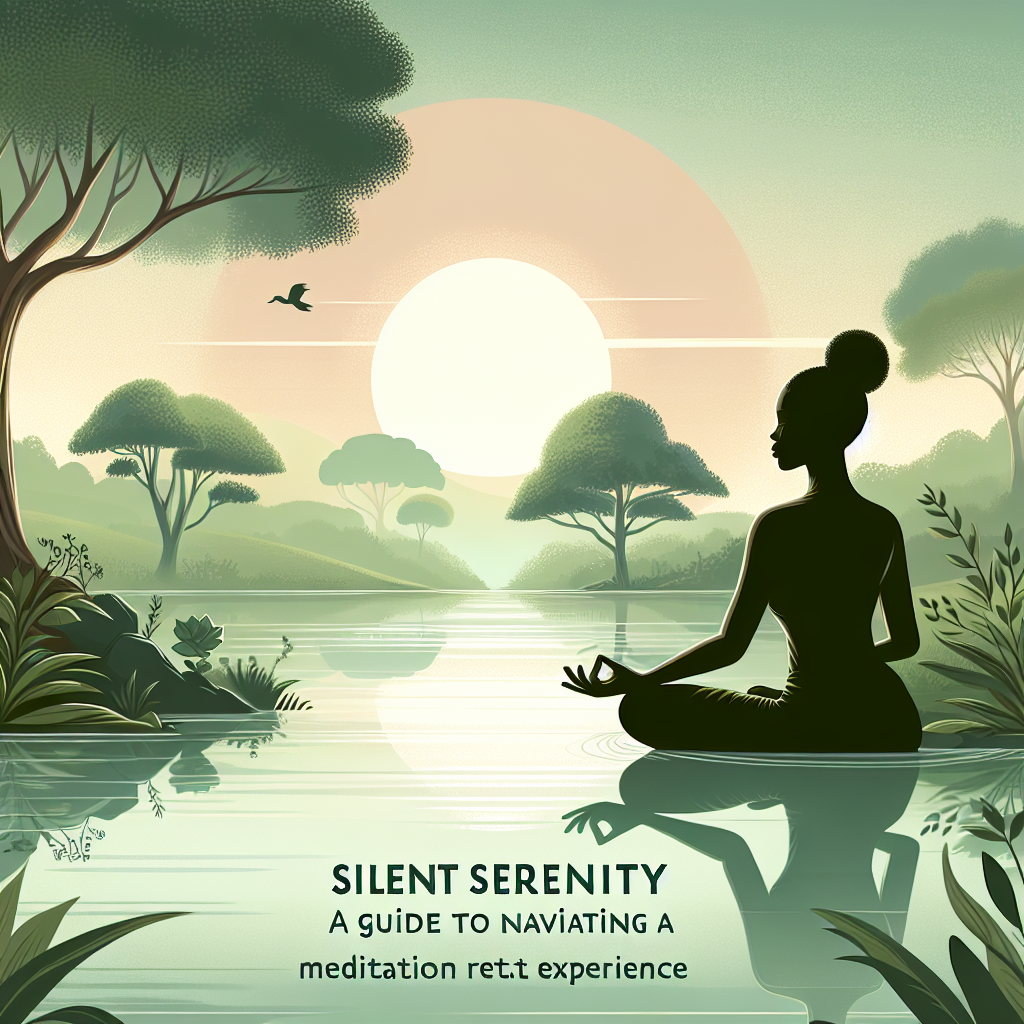meditation has been practiced for centuries as a way to enhance spiritual growth, increase self-awareness, reduce stress, and promote overall well-being. In recent years, the popularity of meditation has skyrocketed, thanks in part to the rise of meditation influencers who have taken social media by storm. These zen masters are using their platforms to spread the benefits of meditation and inspire others to incorporate mindfulness practices into their daily lives.
Social media platforms like Instagram, YouTube, and TikTok have given meditation influencers a space to share guided meditations, mindfulness tips, and personal stories of transformation. These influencers have amassed large followings of individuals seeking to improve their mental and emotional well-being through meditation. By sharing their own experiences with meditation and offering guidance to those who are new to the practice, these influencers are helping to demystify meditation and make it more accessible to a wider audience.
One of the most well-known meditation influencers is Jay Shetty, a former monk turned motivational speaker and author. Shetty has over 30 million followers on social media and has been featured in mainstream media outlets for his work in promoting mindfulness and meditation. Through his online content, Shetty shares personal stories, guided meditations, and practical tips for incorporating mindfulness into everyday life. His message of living with purpose and finding inner peace has resonated with millions of people around the world.
Another popular meditation influencer is Sarah Blondin, a meditation teacher and creator of the popular podcast “Live Awake.” Blondin’s soothing voice and heartfelt messages have captivated listeners and inspired them to embark on their own meditation journeys. Through her guided meditations and words of wisdom, Blondin offers a sense of hope and healing to those who are struggling with anxiety, depression, and other mental health challenges.
The rise of meditation influencers has also led to an increased interest in meditation retreats, workshops, and online programs. Many influencers offer virtual courses and coaching sessions to help individuals deepen their meditation practice and cultivate a greater sense of peace and well-being. These programs typically include guided meditations, mindfulness exercises, and techniques for managing stress and anxiety.
In addition to their online presence, meditation influencers often collaborate with brands and companies to promote mindfulness products and services. From meditation apps and wellness retreats to mindfulness journals and essential oils, these influencers are using their platforms to endorse products that align with their values and promote a holistic approach to well-being.
But what sets meditation influencers apart from traditional meditation teachers or gurus? One key difference is their ability to connect with a wider audience through social media and digital platforms. By sharing personal stories, engaging content, and practical guidance, these influencers are able to reach individuals who may not have access to traditional meditation classes or retreats.
Furthermore, meditation influencers tend to be more relatable and down-to-earth than traditional spiritual leaders. Many influencers share their own struggles with mental health, stress, and self-doubt, making them more approachable and relatable to their followers. This authenticity and vulnerability resonate with many people who are seeking guidance and support on their own meditation journeys.
In addition, meditation influencers often focus on the practical benefits of meditation, such as reducing stress, improving focus, and enhancing self-awareness. While traditional spiritual leaders may emphasize the spiritual or mystical aspects of meditation, influencers are more likely to highlight the tangible benefits that meditation can bring to everyday life.
Overall, the rise of meditation influencers is testament to the growing popularity of mindfulness practices in today’s fast-paced and often stressful world. By using social media and digital platforms to share their wisdom and expertise, these zen masters are changing lives and inspiring others to prioritize their mental and emotional well-being.
FAQs:
Q: How can I start a meditation practice?
A: To start a meditation practice, find a quiet and comfortable space where you can sit or lie down without distractions. Begin by focusing on your breath and bringing your awareness to the present moment. Start with just a few minutes of meditation each day and gradually increase the duration as you become more comfortable with the practice.
Q: Can meditation help with anxiety and depression?
A: Yes, meditation has been shown to be an effective tool for managing anxiety and depression. By practicing mindfulness and focusing on the present moment, individuals can learn to calm their minds and reduce the symptoms of anxiety and depression.
Q: What are some resources for guided meditations?
A: There are many meditation apps, podcasts, and websites that offer guided meditations for beginners and experienced practitioners alike. Some popular resources include Headspace, Calm, Insight Timer, and the “Live Awake” podcast by Sarah Blondin.
Q: How often should I meditate?
A: The frequency of meditation is a personal choice and can vary depending on individual preferences and schedules. Some people find it helpful to meditate daily, while others may prefer to meditate a few times a week. Experiment with different schedules to find what works best for you.
Q: What are the benefits of meditation?
A: Meditation has numerous benefits for both the mind and body, including reducing stress, improving focus and concentration, enhancing self-awareness, and promoting emotional well-being. Regular meditation practice can also improve sleep, boost creativity, and strengthen overall mental health.




Leave A Comment